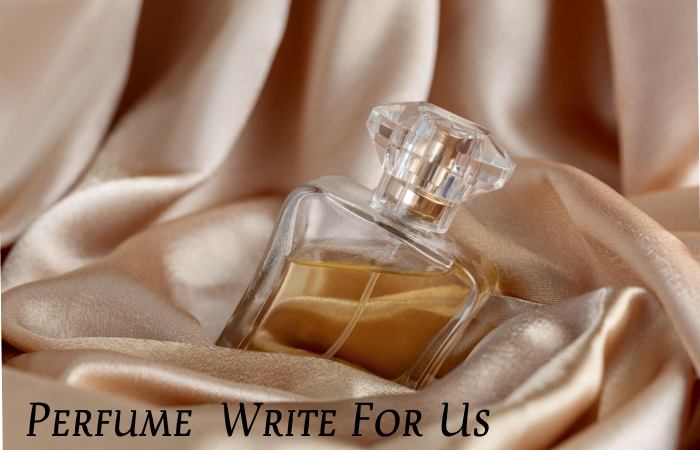
Perfume Write For Us
A perfume combines fragrant essential oils and fixatives used to scent the body. Perfumes remain typically applied to the skin, hair, or clothing. They can be either natural or synthetic.
The word [Perfume] comes as of the Latin word [per fumum], which means [finished smoke]. This is because burning fragrant materials like incense originally made perfumes.
Perfumes Remain Made Up of Three Main Components:
- Top notes
- Middle notes
- Base notes
The choice of Perfume is a personal one. There is no right or wrong answer, and what smells good to one person may not smell good to another. When choosing a perfume, you must consider your preferences and the occasion for which you will wear it.
Here Are Some Things To Keep In Mind When Choosing A Perfume:
Your personal preferences: What kind of scents do you like? Do you prefer light and airy scents or heavier and more musky scents?
The occasion: What are you wearing the Perfume for? Are you going to a formal event or a casual get-together?
Your skin type: Some perfumes can be more irritating to specific skin types than others. If you have sensitive skin, select a perfume labeled as “dermatologically tested” or “hypoallergenic.”
Your budget: Perfumes can vary in price from a few dollars to hundreds. It is essential to set a budget before you start shopping.
Once you have considered these factors, you can start shopping for Perfume. Many different perfumes are available, so you should be able to find one you like.
Here are some tips for wearing Perfume:
Put on Perfume to pulse points, such as the wrists and neck. And also behind the ears. These areas are warmer and will help the fragrance to last longer.
- Don’t overapply Perfume. A little bit goes a long way.
- Avoid applying Perfume to your clothes, as it can damage the fabric.
- If you will be sweating a lot, reapply Perfume throughout the day.
Be aware of other people’s sensitivities. If you know someone allergic to perfumes, avoid wearing them around them.
Why Is It Called Perfume
The word [Perfume] originates from the Latin term [per fumum], which means “through smoke.” This is because burning fragrant materials like incense initially made perfumes.
The first perfumes remained made in ancient Egypt, China, and India. They remained used for religious ceremonies and personal scent. Fragrances also remained used in ancient Greece and Rome.
In the Middle Ages, perfumes became more popular in Europe. They were used by both men and women to cover up body odor and to create a pleasant scent.
In the 18th century, perfumery became a more scientific art. Perfumers began to experiment with different essential oils and fixatives to create new and more complex scents.
Today, perfumes are a multi-billion dollar industry. There are thousands of different perfumes available, and they remain used by people all over the world.
The word “perfume” can also refer to the smell of Perfume. For example, you might say, “I love the fragrance of this rose.
How to Update Your Articles?
To Write for Us. You can email us at contact@beautyscafe.com
Why Write for Beautys Cafe– Perfume Write For Us
- Writing for Beautys Cafe can expose your website to customers looking for Perfume.
- Beautys Cafe presence is on social media, and we will share your article with the Perfume -related audience.
- You can reach out to Perfume enthusiasts.
Article Guidelines on Beautys Cafe – Perfume Write For Us
- We at the Beautys Cafe welcome fresh and unique content related to Perfume.
- Beautys Cafe allow a minimum of 500+ words associated with the Perfume.
- The editorial team of the Beautys Cafe does not encourage promotional content related to Perfume.
- For publishing an article at Beautys Cafe, please email us at contact@beautycafe.com.
- Beautys Cafe allows articles about Beauty, Fitness, Lifestyle, Fashion, Hair, Beauty, Products, and Skin.
Search Terms Related To Perfume Write For Us
fragrant essential oils
aroma compounds
fixatives
solvents
scent
Nobel Laureate
Leopold Ružička
organic chemistry
vanillin
coumarin
Mesopotamia
Egypt
Indus Valley civilization
possibly Ancient China
Romans
Chemist
Tapputi
Cuneiform
Calamus
Aromatics
Almond
Coriander
Myrtle
conifer resin
Search Terms For Perfume Write For Us
Perfume Write for us
Guest Post-Perfume
Contribute to the Perfume
Perfume Submit post
Submit an article
Become a guest blogger, Perfume
Perfume writers wanted
suggest a post-Perfume
Perfume, guest author
